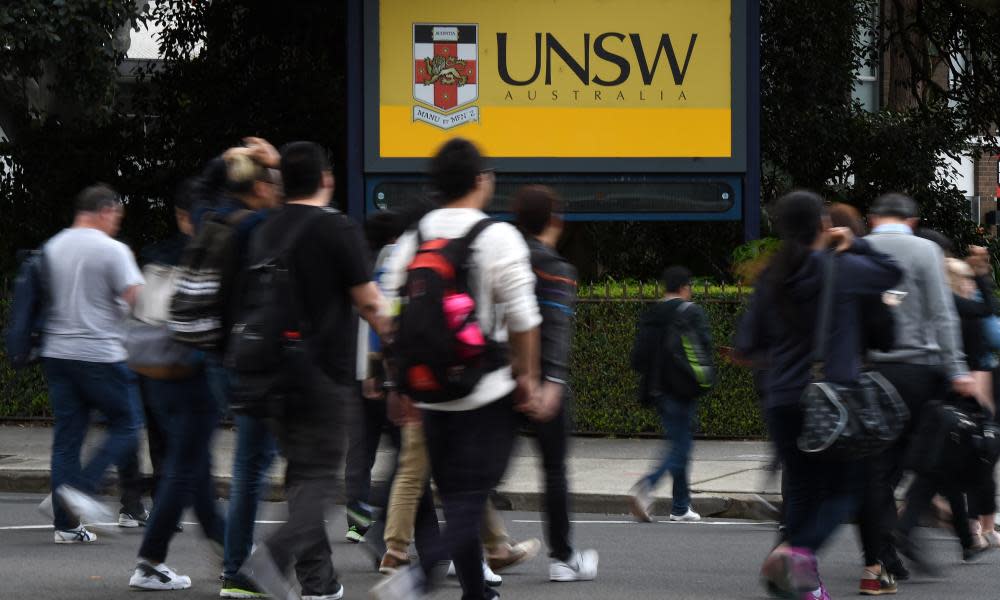Australian universities in for ‘world of pain’ if borders remain closed to international students

The chancellor of one of Australia’s top universities has said it will be in “a world of pain financially” if border closures continue into 2021 and foreign students are unable to travel next year.
Peter Varghese, the chancellor of the University of Queensland, told Guardian Australia that universities across the sector would face severe funding shortfalls if lucrative international student markets cannot be quickly revived.
Universities have proposed a “safe corridor” plan in an attempt to partially revive the stream of foreign students that funds an estimated 27% of spending by Australian universities.
Related: How a 20-year-old student put the spotlight on Australian universities' cosy relationship with China
The federal government has indicated it would welcome proposals for “supervised, stringent quarantine” arrangements that would allow students to come to Australia next year. However the success of any plan would remain susceptible to any development in the public health crisis, both in Australia and in source countries for students.
Varghese said the uncertainty about when students could return meant it was not possible to yet understand the extent of the financial impact of the coronavirus on universities.
“It is going to depend on when international students will be able to come back into Australia,” Varghese said.
“The University of Queensland can get through this year, but if the borders remain shut next year we’ll be in a different world of pain financially.
“My view is that if we enter next year with our borders closed to international students, then a large number of universities will be in very severe financial difficulty.”
Related: Regional universities push to trial a return of international students to Australia
Queensland University has come under increased scrutiny over its relationships with China and with has come the suggestion it is over-reliant on Chinese students. The pre-coronavirus cohort of about 7,000 students from China is about 38% of the university’s total number of international students. One in three students at the university is from overseas.
Varghese previously told the Guardian he found “rather curious … the sort of shock and horror that there are a large number of Chinese students in Australia”.
“I don’t think there is anything the university is doing vis a vis China that in any way conflicts with the core values of universities,” he said.
Varghese also offered a belated condemnation of comments by the Chinese consul-general in Brisbane, Xu Jie, who last year issued a statement praising the “spontaneous patriotic behaviour” of pro-Beijing counter-protesters who crashed a Hong Kong democracy rally on campus, resulting in physical clashes.
Xu is an adjunct professor at the university. Varghese said Xu’s comments “were unacceptable” and that endorsement of violent protest was contrary to the university’s code of conduct. He also said the university would no longer give honorary academic positions to foreign government officials.
Related: University upheaval: 'If people feel safe, we’ll see the students come back'
Liberal senator James Paterson said a direct condemnation should have been made soon after the incident.
“It’s taken 11 months for UQ to finally unequivocally publicly condemn the comments of Xu Jie.
“But despite their promise to never again appoint foreign diplomats, the Brisbane consul-general remains an honorary professor today – even though they now admit he has breached their own code of conduct.
“This is another example of too little too late from UQ when it comes to its compromised relationship with the Chinese Communist Party.”

 Yahoo News
Yahoo News 
